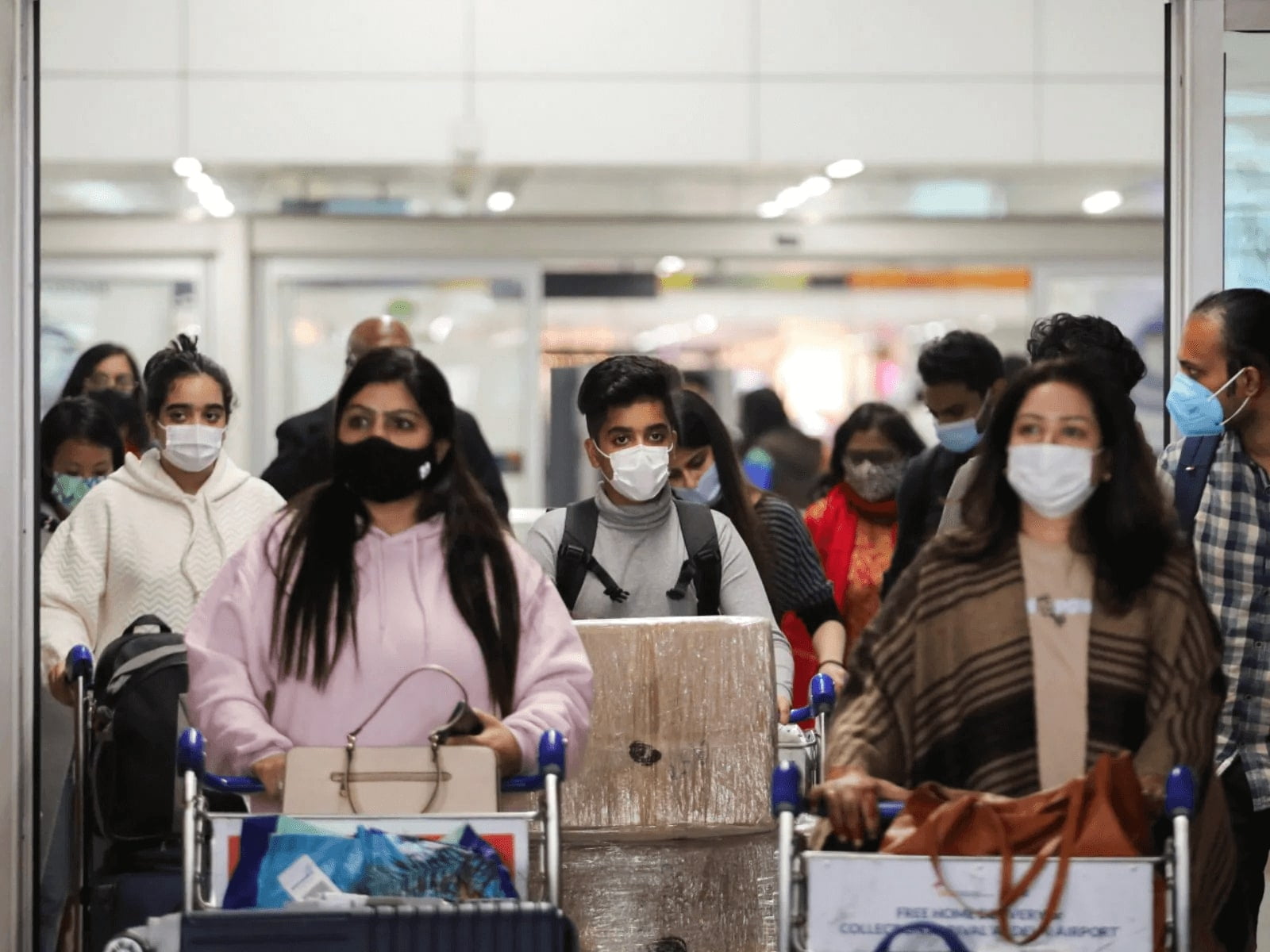The tally of Omicron cases in India has crossed the 200 mark, with Delhi and Maharashtra both registering around 54 cases each related to the new variant.
Omicron, a new variant to the COVID-19 disease is quickly spreading all across the world, also being seen in over 100 countries and even in India, cases of Omicron are only increasing. On Sunday, Delhi recorded around 107 new COVID-19 cases and other states also showed cases.
As per the latest reports around 12 states and union territories have been revealed to have detected Omicron cases, these include Maharashtra, Delhi, Rajasthan and Karnataka, Telangana, Gujarat, Kerala, Andhra Pradesh, Chandigarh, Tamil Nadu and West Bengal.
Although said to be milder as compared to previous versions like Delta, the contagious nature of this variant seems to be more seeing how quickly it has spread. Doctors and medical experts are repeatedly saying that vaccinations seem to be one way to at least decrease the severity of the variant.
But in the midst of all this, students are concerned about what will happen to their plans to study abroad for 2022. Many had already delayed their applications for an year or even if had gone ahead with admissions were studying through online classes. However, in the last few months, it had seemed that the world would be reopening soon.
Omicron’s Effect On Study Abroad Plans
As soon as news of the Omicron variant’s contagious nature was known, countries started to once again either put heavy travel restrictions or close down the borders entirely.
Currently, countries that are on the at-risk list are United Kingdom, South Africa, Brazil, Bangladesh, Botswana, China, Mauritius, New Zealand, Zimbabwe, Singapore, Hong Kong, and Israel. While India is currently not on the list for at-risk countries, but the travel restrictions have still been tightened.
United States, Canada, and Brazil –
Have put up strict travel restrictions for people coming from southern Africa and other at-risk countries.
Britain & European Union –
Both the regions have suspended flights indefinitely while travels returning to those places are expected to show negative COVID test, have both vaccine shots and also stay in quarantine wherever applied.
Russia and Japan –
Travellers coming from Eswatini, Zimbabwe, Namibia, Botswana, South Africa, and Lesotho will be expected to quarantine for 10 days at government-dedicated accommodations.
Australia –
Australia was supposed to open its borders on 1st December, but after the Omicron spread, has delayed it until at least 15th December now.
Flights from nine southern African countries have been banned and Indians or non-Australians that have made a trip to South Africa, Zimbabwe, and other at-risk countries are also banned from entrance to the country.
Read More: Experts Believe That Worse Pandemics Are Ahead
Even India has banned operation of regular commercial international flights till at least 31st January 2022. It is also expected that if these travel restrictions remain then campus closures could be happening soon. Seeing all this as per reports many international students have either canceled or changed their plans for abroad studies.
Students however are in a lurch due to the sudden border closure and travel restrictions. Many have to suffer through flight frequency, visa approval latency, quarantine rules, flight bans, and also the overall increase in expenses. Reports are also revealing that several had quit their jobs in anticipation of their study abroad plans.
As per a report by The Economic Times, “study showed that 40% of learners had lost their job offers, internships while 13% of learners have delayed their graduation due to the current situation. Additionally, there are 55% increased chances that lower-income learners have delayed their graduation compared to their high-income peers.”
In light of all this, students are being advised to not quit their jobs or opt for on-campus programs. Instead, online courses being offered by the same universities are being offered as a better alternative.
Considering the turbulent times and how within a month itself things can change, students are reportedly being told to choose foreign universities that offer online courses. This way, there would be no delay, those who are working would not need to quit their job and also whenever things do get better, a prior association with the university could help in getting an on-campus admission.
Image Credits: Google Images
Sources: The Economic Times, The Guardian, India Today
Find the blogger: @chirali_08
This post is tagged under: Omicron study abroad, covid, covid variant, covid variant omicron, covid-19, new covid variant, Omicron spread, study abroad, students, indian students, omicron border restrictions
Other Recommendations:
Experts Tell About How To Know The Difference Between Omicron And Common Cold
































